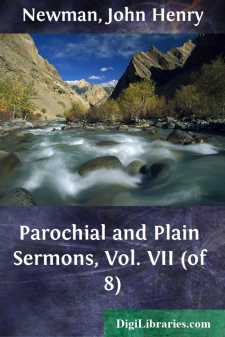Categories
- Antiques & Collectibles 13
- Architecture 36
- Art 48
- Bibles 22
- Biography & Autobiography 813
- Body, Mind & Spirit 142
- Business & Economics 28
- Children's Books 15
- Children's Fiction 12
- Computers 4
- Cooking 94
- Crafts & Hobbies 4
- Drama 346
- Education 46
- Family & Relationships 57
- Fiction 11828
- Games 19
- Gardening 17
- Health & Fitness 34
- History 1377
- House & Home 1
- Humor 147
- Juvenile Fiction 1873
- Juvenile Nonfiction 202
- Language Arts & Disciplines 88
- Law 16
- Literary Collections 686
- Literary Criticism 179
- Mathematics 13
- Medical 41
- Music 40
- Nature 179
- Non-Classifiable 1768
- Performing Arts 7
- Periodicals 1453
- Philosophy 64
- Photography 2
- Poetry 896
- Political Science 203
- Psychology 42
- Reference 154
- Religion 513
- Science 126
- Self-Help 84
- Social Science 81
- Sports & Recreation 34
- Study Aids 3
- Technology & Engineering 59
- Transportation 23
- Travel 463
- True Crime 29
Historical Sketches, Volume I (of 3) The Turks in Their Relation to Europe; Marcus Tullius Cicero; Apollonius of Tyana; Primitive Christianity
Description:
Excerpt
PREFATORY NOTICE.
The following sketch of Turkish history was the substance of Lectures delivered in the Catholic Institute of Liverpool during October, 1853. It may be necessary for its author to state at once, in order to prevent disappointment, that he only professes in the course of it to have brought together in one materials which are to be found in any ordinarily furnished library. Not intending it in the first instance for publication, but to answer a temporary purpose, he has, in drawing it up, sometimes borrowed words and phrases, to save himself trouble, from the authorities whom he has consulted; and this must be taken as his excuse, if any want of keeping is discernible in the composition. He has attempted nothing more than to group old facts in his own way; and he trusts that his defective acquaintance with historical works and travels, and the unreality of book-knowledge altogether in questions of fact, have not exposed him to superficial generalizations.
One other remark may be necessary. Such a work at the present moment, when we are on the point of undertaking a great war in behalf of the Turks, may seem without meaning, unless it conducts the reader to some definite conclusions, as to what is to be wished, what to be done, in the present state of the East; but a minister of religion may fairly protest against being made a politician. Political questions are mainly decided by political expediency, and only indirectly and under circumstances fall into the province of theology. Much less can such a question be asked of the priests of that Church, whose voice in this matter has been for five centuries unheeded by the Powers of Europe. As they have sown, so must they reap: had the advice of the Holy See been followed, there would have been no Turks in Europe for the Russians to turn out of it. All that need be said here in behalf of the Sultan is, that the Christian Powers are bound to keep such lawful promises as they have made to him. All that need be said in favour of the Czar is, that he is attacking an infamous Power, the enemy of God and man. And all that need be said by way of warning to the Catholic is, that he should beware of strengthening the Czar's cause by denying or ignoring its strong point. It is difficult to understand how a reader of history can side with the Spanish people in past centuries in their struggle with the Moors, without wishing Godspeed, in mere consistency, to any Christian Power, which aims at delivering the East of Europe from the Turkish yoke.
lect.page1. The Tribes of the North2. The Tartars3. The Tartar and the Turk4. The Turk and the Saracen5. The Turk and the Christian6. The Pope and the Turk7. Barbarism and Civilization8. The Past and Present of the Ottomans9. The Future of the OttomansNoteChronological Tables
I.
LECTURE 1.
The Tribes of the North.
The collision between Russia and Turkey, which at present engages public attention, is only one scene in that persevering conflict, which is carried on, from age to age, between the North and the South,—the North aggressive, the South on the defensive. In the earliest histories this conflict finds a place; and hence, when the inspired Prophets denounce defeat and captivity upon the chosen people or other transgressing nations, who were inhabitants of the South, the North is pointed out as the quarter from which the judgment is to descend.
Nor is this conflict, nor is its perpetuity, difficult of explanation. The South ever has gifts of nature to tempt the invader, and the North ever has multitudes to be tempted by them. The North has been fitly called the storehouse of nations. Along the breadth of Asia, and thence to Europe, from the Chinese Sea on the East, to the Euxine on the West, nay to the Rhine, nay even to the Bay of Biscay, running between and beyond the 40th and 50th degrees of latitude, and above the fruitful South, stretches a vast plain, which has been from time immemorial what may be called the wild common and place of encampment, or again the highway, or the broad horse-path, of restless populations seeking a home. The European portion of this tract has in Christian times been reclaimed from its state of desolation, and is at present occupied by civilized communities; but even now the East remains for the most part in its primitive neglect, and is in possession of roving barbarians.
It is the Eastern portion of this vast territory which I have pointed out, that I have now, Gentlemen, principally to keep before your view. It goes by the general name of Tartary: in width from north to south it is said to vary from 400 to 1,100 miles, while in length from east to west it is not far short of 5,000. It is of very different elevations in different parts, and it is divided longitudinally by as many as three or four mountain-chains of great height. The valleys which lie between them necessarily confine the wandering savage to an eastward or westward course, and the slope of the land westward invites him to that direction rather than to the east. Then, at a certain point in these westward passages, as he approaches the meridian of the Sea of Aral, he finds the mountain-ranges cease, and open upon him the opportunity, as well as the temptation, to roam to the North or to the South also. Up in the East, from whence he came, in the most northerly of the lofty ranges which I have spoken of, is a great mountain, which some geographers have identified with the classical Imaus; it is called by the Saracens Caf, by the Turks Altai....






